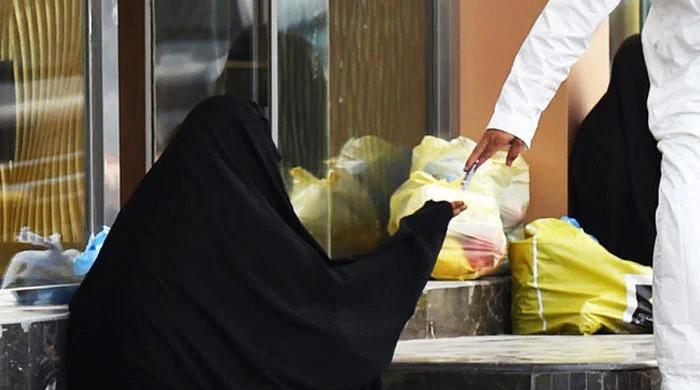SC asks FIA to submit progress report in Axact fake degree case
The apex court adjourns hearing of the case for one month
September 27, 2018
ISLAMABAD: The Supreme Court of Pakistan on Thursday sought a report from the Federal Investigation Agency (FIA) regarding progress in Axact fake degree scandal case.
A three-member bench of the apex court, led by Chief Justice Saqib Nisar, conducted hearing of the case, during which Director General (DG) FIA Bashir Memon said a local court in Islamabad has sentenced 23 accused in the case.
He informed the Supreme Court that Axact CEO Shoaib Sheikh and two others have been arrested and moved to prison.
During the hearing, Axact's counsel claimed that Sheikh surrendered himself to the FIA. At this, the chief justice remarked that the Axact CEO could never present himself for arrest and he was aware of all what happened.
The DG FIA informed the court that there still were two cases pending against Axact in Karachi. A case against the company was dismissed in Peshawar, he said, adding that a petition was filed against it.
Justice Nisar inquired Axact's counsel if Sheikh had deposited Rs100 million pertaining to salaries issue. The counsel replied that the Axact CEO had deposited Rs50 million, adding that the matter is under consideration on the relative forum.
The court, while seeking a progress report in the case from the FIA, adjourned the hearing for one month.
Sheikh, who was sentenced to 20 years in prison, was arrested on Tuesday after which he was shifted to Adiala jail in Rawalpindi.
The case
In July this year, Sheikh and 22 others were sentenced by a district and sessions court to 20 years in prison in total and fined Rs1.3 million each in the case.
Sheikh and others were sentenced to three years each under sections 419 and 420 of Pakistan Penal Code, and fined Rs0.3 million each. They were also sentenced to 7 years each under sections 468 and 471, and fined Rs1 million each.
All penalties will be applied together under section 382 of the Pakistan Penal Code. The court also acquitted three accused – Aisha Shoaib Sheikh, Col (R) Jamil Ahmed and Lt Col (R) Muhammad Younas – giving them benefit of doubt. Failure to pay fines under sections 419, 420 and 468 will lead to extension of six months in their jail term on each count.
The trial court judge had earlier acquitted Axact CEO and other accused in the case. Additional district and sessions judge Pervaizul Qadir Memon had confessed to receiving Rs5 million for acquitting Shoaib Sheikh in the case.
The Axact scandal surfaced in May 2015, when The New York Times published a report claiming the company sold fake diplomas and degrees online through hundreds of fictitious schools, making “tens of millions of dollars annually”.
The FIA had also filed an appeal with the Islamabad High Court (IHC) against the trial court's order acquitting all the accused in the case.
The IHC had then declared the acquittal of Sheikh and others void. It had ordered the sessions court to against listen to the final arguments and announce a verdict in the case.
'Worthless diplomas'
The issue came to the fore in 2015 when The New York Times published an article, claiming Axact sold fake degrees online through hundreds of fictitious schools.
After the issue surfaced, the offices of the company were sealed and its chief executive officer and other officials were arrested.
A senior manager of the company, Umair Hamid, was sentenced to 21 months in a US prison in August 2017 for his part in Axact's fraud.
According to the US Department of Justice’s website, Hamid pled guilty on April 6 this year to conspiracy to commit wire fraud. “He entered the guilty plea before a US District judge who imposed today’s sentence.”
Hamid, an executive of Axact, was arrested on Dec 19, 2016, according to a statement by former Manhattan US Attorney Preet Bharara. He was produced in a federal court in Fort Mitchell, Kentucky, the following day.
According to the department of justice, Hamid was involved in running a “massive diploma mill” through Axact. The mill tricked people from across the world into enrolling in supposed high schools, colleges, and universities.
“Consumers paid upfront fees, believing that in return they would be enrolled in real educational courses and, eventually, receive legitimate degrees. Instead, consumers received no instruction and worthless diplomas,” the website said.














